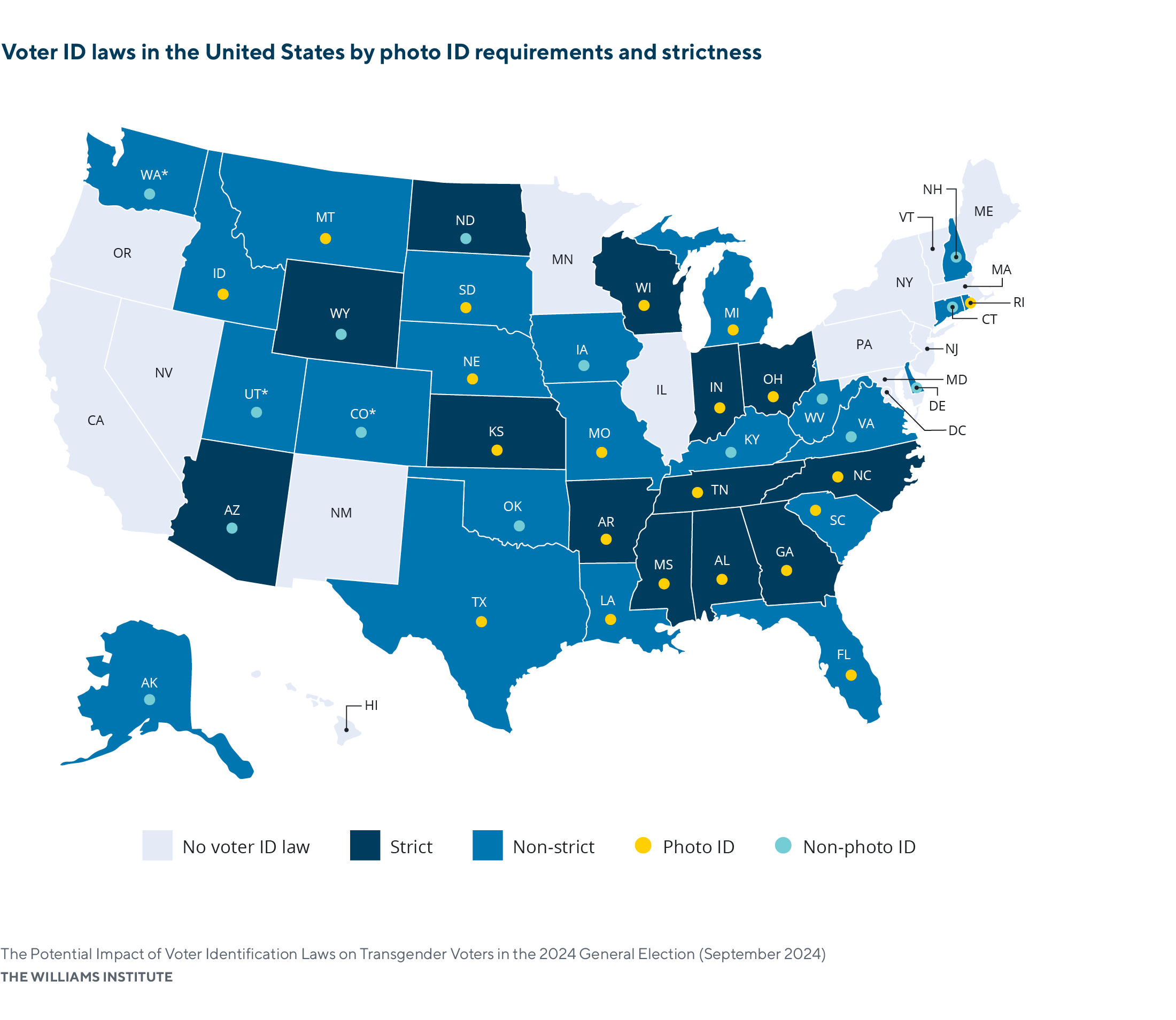Executive Summary
Transgender people face unique obstacles to obtaining identity documents (IDs) that match their gender identity. Identity documents that do not match one’s gender, such as a person’s name or gender marker, create obstacles to participating in many facets of public life, including voting. Such obstacles can impact voting in the 36 states that have voter ID laws, especially the 33 voter ID states that conduct their elections primarily in person. In these states, voters encounter additional verification requirements at the polls on top of federal standards for voter registration and eligibility determination. The strictest of these voter ID laws require voters to present a government-issued photo ID at the polling place and provide no alternative for voters who do not have a photo ID or, as is often the case for transgender voters, have an inaccurate photo ID.
The Williams Institute analyzed voter ID laws across the United States in the lead-up to the November 2024 general election. Notably, since the last presidential election in 2020, voters in 27 states will face new restrictions for the 2024 general election that were not present for the 2020 general election. As a result, we found that as many as 210,800 transgender Americans who are eligible to vote may find it difficult to do so because of voter ID laws, including 91,300 who could face disenfranchisement in states with strict photo ID requirements. The analysis also revealed that:
- An estimated 825,100 transgender adults in the U.S. will be eligible to vote in the November 2024 general election.
- Forty-two states conduct their elections primarily in-person at polling places, as opposed to fully by mail.
- Over 647,700 voting-eligible transgender Americans live in these states.
- An estimated 43% of these individuals (276,500) lack identity documents that correctly reflect their name or gender.
- These individuals may face barriers to voting in person because of a mismatch with their information as listed on voter registration rolls or because of voter ID laws.
- About 433,200 voting-eligible transgender Americans live in the 33 states that both 1) primarily conduct their elections in-person at the polls and 2) have a voter ID law. Nearly half of these, or 210,800 individuals, do not have an ID that correctly reflects their name and/or gender.
- Of voting-eligible transgender people who live in states with voter ID requirements, 91,300 live in the states with the strictest voter ID laws (photo ID required with few or no alternatives available).
- These eligible voters could face substantial barriers and potential disenfranchisement in the November 2024 general election.
- Transgender people who are Black, Indigenous, or people of color, young adults, students, people with low incomes, people experiencing homelessness, and people with disabilities are overrepresented among the over 210,800 voting-eligible transgender people who may face barriers to voting due to voter ID laws in the 2024 election cycle.
